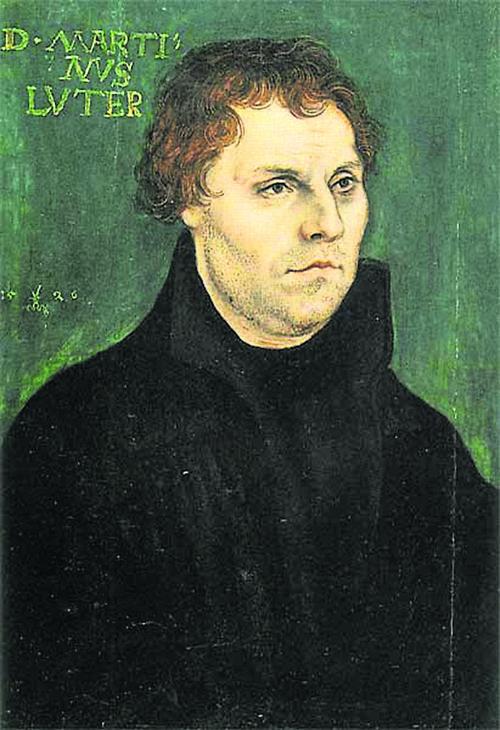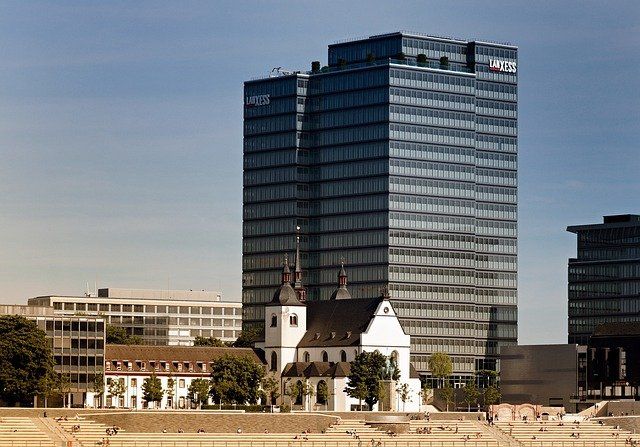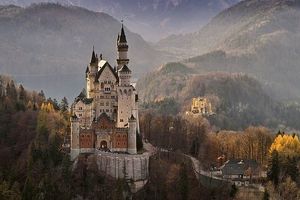It is probably true to say that throughout the twentieth century the majority of Germans have never heard the gospel of Jesus Christ preached.
In August 1887, C. H. Spurgeon wrote in The Sword and Trowel that ‘Germany was made unbelieving by her preachers’. What happened in Germany between 1517, the year Martin Luther nailed his ninety-five theses to the church door in Wittenburg, and 1887, when England’s leading preacher made his bleak assessment, to account for this situation?
Mosaic
Charlemagne (742 – 814) had united Germanic tribes within the Holy Roman Empire, but only until his death. The Reformation deepened divisions in the land, fragmenting it into a mosaic of fiercely independent states, now nominally Roman Catholic, Lutheran or Calvinistic. This position continued until the emergence of Prussia, under Frederick the Great (1712 – 1786). Prussia grew in power and dominance, until Count Otto von Bismark reunited Germany under Prussian rule in 1871.
Defeat
In 1918, following Germany’s defeat in the First World War, a democratic government was elected. But this ‘Weimar Republic’ was swept aside by Adolf Hitler in 1933. Hitler had gained popular support by capitalising on the sense of betrayal felt by many ordinary people over Germany’s surrender in 1918. His manifesto was Mein Kampf (My Struggle), written early in his career as he languished in prison for street rioting.
Mein Kampf was an unambiguous ‘mission statement’, which dripped with anti-Semitism and hatred for all who had ‘betrayed’ the fatherland. It preached naked imperialism and demanded ‘living space’ in the east for the German peoples. Hitler’s rise to power led inevitably to German remilitarization and the Second World War. After Germany’s initial successes on the battlefield, the war gradually turned against them and their total capitulation came in May 1945.

Reunion
Germany was carved up by the invading armies into two nations. These were constituted fifty years ago, in 1949, as the Federal (West) and the Democratic (East) Republics of Germany. This East-West division continued for forty years. West Germany, defended by NATO, prospered economically and rose like a phoenix from the ashes. East Germany, under the stifling influence of communism, made slow economic progress. The ‘Berlin Wall’ was erected by East Germany to keep her citizens from fleeing to the West. It was a powerful symbol of a division that cut deep across both Germany and Europe.
The Berlin Wall’s removal in 1989 came as the climax of an astonishingly rapid implosion of communism. This implosion gathered pace throughout Eastern Europe in the late 1980s. By 1990 East Germany had formally united with or, more accurately, had been absorbed into West Germany. Germany was once more politically united.
Spiritual alienation
But Germany, politically reunited, is still alienated from its Creator. Why is this? What Luther proclaimed to the professing church nearly five centuries ago was ‘grace alone, faith alone and Scripture alone’. These Reformation or gospel principles had a profound effect upon the rest of Western Europe. Yet, surprisingly, they did not take deep root in the German churches.

Perhaps Luther was not without fault, for he stood strongly for an inclusive, institutionalised, visible church – a ‘Volkskirche’ (church of the people). Such a body inevitably brought unbelievers into communion with an elect, ‘invisible’ church. It became nominal, and open to state interference by political rulers. The Thirty Years War (1618-1648) served to accelerate the confusion of the political and spiritual realms.
Higher Criticism
By the end of the seventeenth century, ‘pietism’ had been added to the German spiritual melting pot. Philip Spener, Herman Francke and Count Nikolas von Zinzendorf energised the Lutheran churches by their personal spirituality and emphasis on the priesthood of all believers. But at the same time, pietism’s mystical aberrations eased the way for the irrational romanticism of the Enlightenment. This found expression in the writings of F. Schleiermacher (1768 – 1834), himself from a Moravian background. His thesis was that emotion rather than knowledge is the touchstone of true religious experience.
German theological seminaries and churches were thus easy prey to Higher Criticism. During the nineteenth century, Germany became the citadel of an aggressive theological liberalism. This modernism, with its rejection of biblical supernaturalism, had a profoundly damaging effect, not only on German churches but also on churches across the world. Its ‘message’, which was little more than a Christianised, politicised morality, is typified in the teaching of Rudolf Bultmann (1884 – 1976). Bultmann’s demythologised ‘gospel’ had no place for infallible Scripture, real miracles, the virgin birth, vicarious atonement, the physical resurrection of Christ, and heaven and hell.
Disastrous legacy
Nazism’s dramatic emergence was, in the first instance, due to Hitler’s charismatic leadership, his nearly demonic power of oratory, and his undoubted military genius. But the Nazi ideal of a nation-state, incarnated in a ‘superman’ leader, with its rampant secularism, nationalism and militarism, found a ready acceptance among many ordinary people. It drew upon philosophical and theological currents already long and widely established. It filled a vacuum. Germany had been made unbelieving by her Christian preachers, but she had to believe in something. Hitler gave her the missing ideology, at least for his generation.

Legacy
The disastrous legacy of the Second World War left few Germans untouched by a sense of guilt. The immediate post-war years found the established churches, compromised by nationalism, in deep crisis. They had lost the gospel entirely. Although many Germans turned to the churches after the war, they were all too often sent away empty.
The result has been that, since the 1960s, Germany’s churches have been emptying rapidly, in spite of deceptively high membership rolls. Nominal Christianity, once the prevalent religion, is now in rapid and terminal decay. Many churches in Germany, as elsewhere in Western Europe, are ecumenical or pluralistic in stance. In such a spiritual environment, NewAge religion and the cults have been the fastest growing religious bodies. It is probably true to say that, throughout the twentieth century, the majority of Germans have never heard the gospel of Jesus Christ preached.










